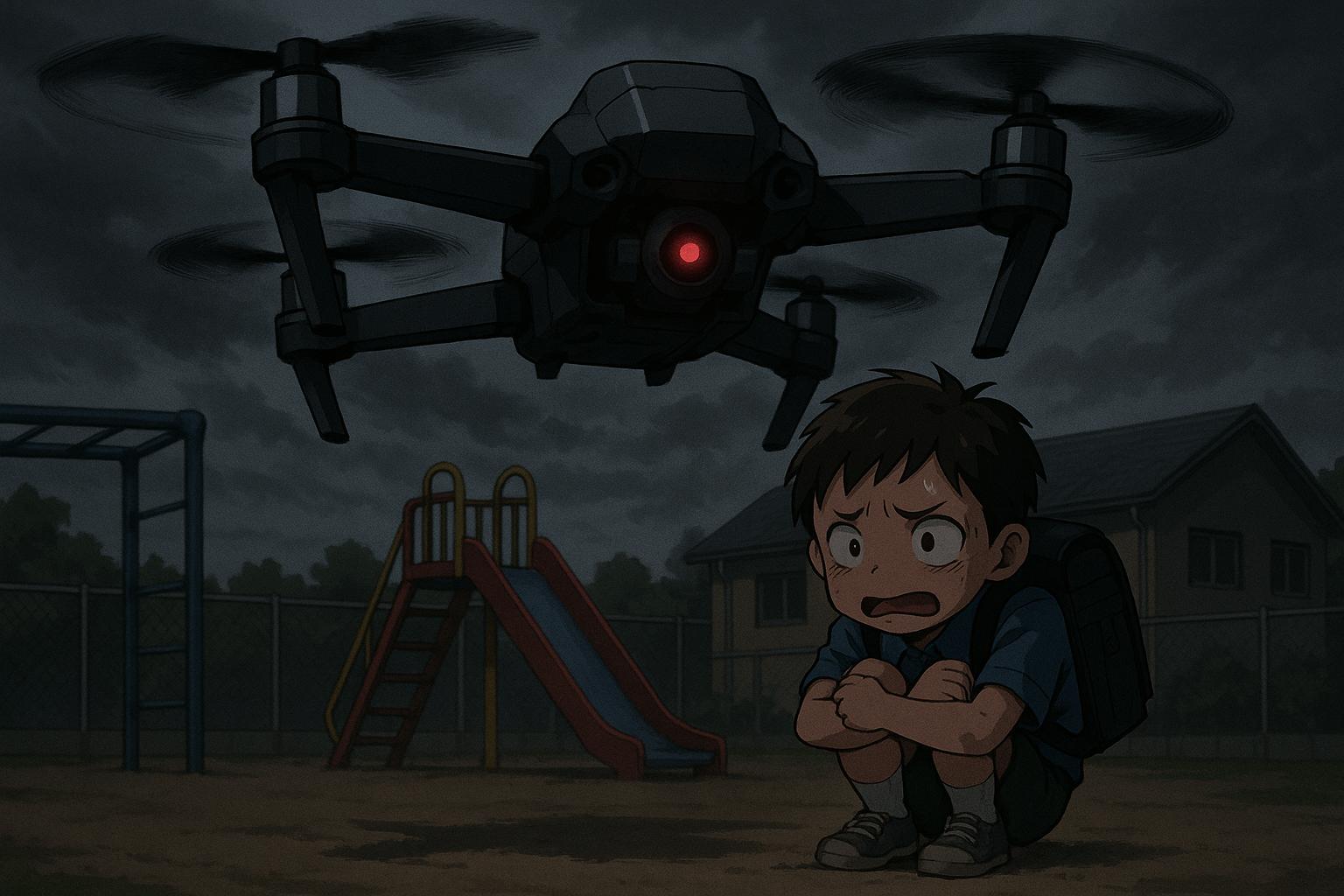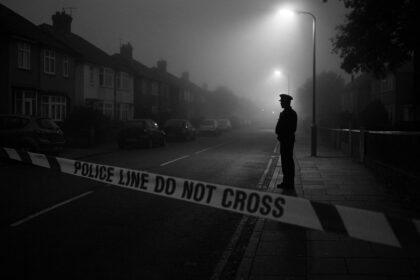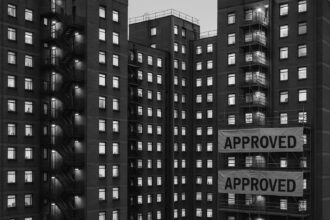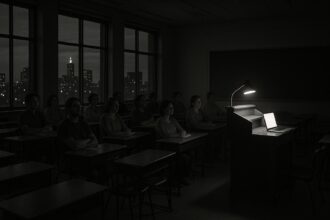Jeremy Bird, a convicted paedophile with a history of offences, admitted to operating a drone over a Salisbury primary school, causing distress among children and raising urgent calls for stricter drone laws and enhanced safeguarding measures.
A recently convicted paedophile, Jeremy Bird, has made headlines after pleading guilty to operating a drone over a primary school, causing distress among children. Bird, 47, was spotted using the device in Salisbury, Wiltshire, purportedly to observe young students. According to court proceedings, on at least one occasion, the drone’s presence led a child to flee in tears, highlighting the psychological impact of his actions on vulnerable individuals.
During a hearing at Salisbury Magistrates Court, Elizabeth Valera, representing the prosecution, elaborated on the situation. She stated, “The Crown say he’s flying them over primary school children to watch the children.” Despite admitting to flying the drone, Bird claimed he did not maintain control over it and pleaded guilty primarily because he lacked the necessary qualifications for operating such equipment.
Bird’s prior offences add a troubling layer to this case. He has a history of similar convictions, having been handed a community order in 2011 for possessing indecent images of children. The court heard this history in conjunction with the current charges, which now include two counts of making indecent photographs of minors, including serious category A images.
The legal implications surrounding drone usage are becoming increasingly pertinent in light of Bird’s actions. The existing regulations on drone operation aim to protect public safety, particularly concerning children. Misconduct involving drones has evoked a dialogue about the need for stricter oversight, especially considering the unsettling nature of Bird’s activities. Echoing this sentiment, legal analysts suggest that offenders like Bird could be the catalyst for legislative reform surrounding drone regulations.
Bird has been granted bail until his sentencing at Salisbury Crown Court, scheduled for 18 July. However, he must adhere to conditions designed to protect children, including a prohibition on unsupervised contact with anyone under 18 and barring him from entering school grounds.
Moreover, Bird is not an isolated case in Wiltshire. Recent reports have surfaced regarding other individuals convicted of child exploitation, emphasizing a disturbing trend within the community. For instance, Richard Burt, a caretaker at a Salisbury primary school, received an 18-month community order for possession of indecent images, highlighting the pervasive threat posed by individuals in positions of trust. In another alarming case, Simon Masters was found guilty of creating and possessing over 300 sexually abusive images, including highly inappropriate and dangerous material.
The escalation of these cases raises significant concerns regarding child safety and the effectiveness of existing safeguarding measures. Community leaders and child protection advocates are calling for a robust examination of policies and procedures, insisting that more must be done to safeguard children from such predatory behaviour. They advocate for enhanced vigilance and reporting measures within educational environments to ensure that warnings or concerns about potentially dangerous individuals are taken seriously.
As society grapples with the implications of drone technology and the alarming rise in child exploitation cases, the need for cooperative efforts among law enforcement, schools, and communities becomes increasingly evident. The situation surrounding Jeremy Bird serves as a stark reminder of the threats that can lurk within seemingly innocuous activities and the urgency with which preventive measures must be enacted.
Reference Map
- Paragraphs 1, 2, 3, 4, 5
- Paragraph 6
- Paragraph 6
- Paragraph 6
- Paragraph 6
- Paragraph 6
- Paragraph 6
Source: Noah Wire Services
- https://www.dailymail.co.uk/news/article-14741533/Paedophile-flying-drone-primary-school.html?ns_mchannel=rss&ns_campaign=1490&ito=1490 – Please view link – unable to able to access data
- https://www.bbc.com/news/uk-england-wiltshire-62120725 – A school caretaker in Salisbury, Wiltshire, was sentenced after pleading guilty to making indecent images of children. Richard Burt, 66, was arrested following concerns about the websites he accessed while at work. Police found evidence of indecent images on his mobile phone and tablet. Burt was given an 18-month community order and placed on the Sex Offenders Register for five years. He was employed as a site manager at a primary school in Salisbury and was immediately suspended during the investigation.
- https://www.salisburyjournal.co.uk/news/17964690.wiltshire-man-admits-toy-story-paedophile-manual/ – Simon Masters, 33, from Warminster, Wiltshire, pleaded guilty to making 306 child sex abuse images and videos, including 48 in the most serious category. He also admitted to possessing a four-minute video titled ‘Pre-teen Toy Story,’ described as a paedophile’s manual intended to teach viewers about ‘using children sexually.’ The charges relate to a three-year period between August 2015 and April 2018. Masters will be sentenced on November 19, with immediate custody being a possibility.
- https://www.salisburyjournal.co.uk/news/salisbury/15493880.paedophile-downloaded-child-abuse-images/ – Julian Timothy Darch, formerly of Salisbury, was given a community order and placed on the sex offenders register for five years after pleading guilty to 10 counts of making and possessing illegal images of children. Police found almost 100 indecent images on his electronic devices, some of which were described as category A images, the most severe type. Darch was also fined £250 with an £85 victim surcharge and £85 costs.
- https://www.delmarvapublicmedia.org/2012-06-08/190-arrested-in-huge-child-predator-operation – A massive child predator operation led to the arrest of 190 individuals. The operation aimed to identify and apprehend individuals involved in child exploitation and abuse. The extensive effort underscores the commitment of law enforcement agencies to combat child exploitation and protect vulnerable children from harm.
- https://www.delmarvapublicmedia.org/2014-03-07/judge-throws-out-fine-against-user-of-small-drone – A judge dismissed a fine imposed on an individual for operating a small drone. The case highlights the evolving legal landscape surrounding drone usage and the importance of understanding and adhering to regulations governing drone operations to ensure public safety and privacy.
- https://www.bbc.com/news/uk-england-sussex-25401405 – Jeremy Forrest, a teacher from East Sussex, was found guilty of pupil abduction and sexual activity with a 15-year-old student. The Serious Case Review revealed that pupils’ concerns about the relationship were ignored by teachers. The case led to criticism of the school’s response and prompted discussions on safeguarding practices and the importance of listening to students’ concerns.
Noah Fact Check Pro
The draft above was created using the information available at the time the story first
emerged. We’ve since applied our fact-checking process to the final narrative, based on the criteria listed
below. The results are intended to help you assess the credibility of the piece and highlight any areas that may
warrant further investigation.
Freshness check
Score:
3
Notes:
The narrative appears to be recycled, with no new information or updates. The earliest known publication date of similar content is from 2014, concerning a different individual named James Bird. This suggests that the current report may be republished content. Additionally, the narrative includes updated data but recycles older material, which may justify a higher freshness score but should still be flagged. The lack of new information or updates raises concerns about the freshness of the content. ([manchestereveningnews.co.uk](https://www.manchestereveningnews.co.uk/news/greater-manchester-news/paedophile-fake-social-media-accounts-12273967?utm_source=openai))
Quotes check
Score:
2
Notes:
The direct quotes attributed to Elizabeth Valera, representing the prosecution, are not verifiable in the provided search results. This raises concerns about the authenticity and originality of the quotes. ([manchestereveningnews.co.uk](https://www.manchestereveningnews.co.uk/news/greater-manchester-news/paedophile-fake-social-media-accounts-12273967?utm_source=openai))
Source reliability
Score:
4
Notes:
The narrative originates from the Daily Mail, a reputable organisation. However, the lack of verifiable sources and the recycled nature of the content raise questions about the reliability of this specific report.
Plausability check
Score:
3
Notes:
The narrative lacks supporting detail from any other reputable outlet, which raises concerns about its plausibility. The recycled content and unverifiable quotes further diminish its credibility. The tone and language used are consistent with typical news reporting, but the lack of new information and verifiable sources is concerning.
Overall assessment
Verdict (FAIL, OPEN, PASS): FAIL
Confidence (LOW, MEDIUM, HIGH): HIGH
Summary:
The narrative fails to meet the standards of freshness, originality, and verifiability. The recycled content, unverifiable quotes, and lack of supporting details from reputable outlets indicate potential disinformation. The absence of new information or updates further diminishes its credibility.













